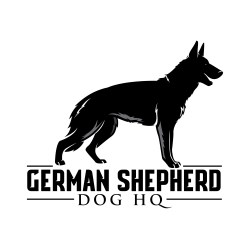Humans have varied feelings over wasabi. Many sushi-eaters love the condiment while others cannot tolerate it.…
Can German Shepherds Eat Raw Meat?
While some strongly believe that raw feeding is an unsafe way to feed dogs, others consider it extremely beneficial. So what’s actually true? Can German Shepherds eat raw meat?
Can I Feed My GSD Raw Meat?
Yes, absolutely! German Shepherds can definitely eat raw meat. Although choosing it over high-quality kibble is a matter of your personal preference, raw feeding is not necessarily detrimental to your GSD’s health. You just need to be aware of how to do it properly to ensure adequate nutrition and to avoid potential hazards.
Benefits of Feeding Raw Meat to your German Shepherd

According to the Animal Humane Society, a home-cooked and raw food diet is better only because it offers better digestibility. While raw and fresh food is typically 98% digestible, commercial dog food has a lower digestibility of 80%. That’s not to say that kibble is harmful. It only means that fresh food is more efficient at providing nutrients.
Additionally, many believe that a fresh diet composed mainly of raw meat better mimics what German Shepherds would eat in the wild. Theoretically, because their bodies are adapted for such a diet, dogs that eat raw meat tend to be healthier and less prone to digestive issues, which are common among GSDs.
How to Feed Raw Meat to your German Shepherd
There are many approaches to raw feeding, and it’s essential that you discuss this matter with your veterinarian to address your own dog’s specific nutritional needs.
Nevertheless, here are the two most common methods for raw feeding German Shepherds:
Biologically Appropriate Raw Food Diet (BARF Diet)
The BARF diet is basically a fresh alternative to kibble. It is mostly composed of raw meat but also includes other ingredients like vegetables and seeds.
The key is to provide the same nutritional profile as high-quality commercial dog food, but through meals that have no preservatives and have better absorption rates.
Through this method, meals should be composed of 70% muscle meat, 10% raw edible bone, 7% vegetables, 5% liver, 5% other secreting organs, 2% seeds or nuts (make sure you avoid those that are considered toxic for GSDs), and 1% fruit.
The Prey Model Raw Diet (PMR Diet)
The PMR diet is based on the concept that wild dogs would eat whole prey, including the bones and internal organs. Its most distinct difference from the BARF method is that it does not contain any plants.
Instead, this diet is composed of 80% muscle meat, 10% internal organs, and 10% edible bone.
Potential Hazards of a Raw Meat Diet
Pushback against raw meat for dogs isn’t a denial of its benefits but a recognition of its potential hazards. Generally, a raw food diet poses the following risks:
Malnutrition
Commercial dog food is specifically formulated to give your pup a balanced diet. By preparing your dog’s food yourself, you risk an incomplete nutritional profile.
To avoid this, make sure you adhere to the recommended ratios for the raw diet method you intend to follow.
Contamination
Undercooked and raw meat can be contaminated with harmful bacteria like E. coli and Salmonella. Additionally, wild meat can contain parasites that are detrimental to your dog’s health.
Always follow the same food safety protocols as you would with food for human consumption. Also, always source your meat from reputable establishments.
Choking
Because raw meat feeding includes animal bones, familiarize yourself with what your dog’s bite force can handle. Generally, you should avoid weight-bearing bones because those are hard enough to break teeth, cause choking, or even lead to throat or gut perforation.
As long as you follow food safety protocols, feeding your GSD raw meat should be harmless. In fact, it could be a good way for your pup to get all the nutrition they need.
Final Thoughts
Whether you use it to replace their dog food or give as an occasional treat, your German Shepherd is very likely to enjoy raw meat.
Nevertheless, shifting to this feeding method is a personal decision that you should base on how you want to provide for your pet, the impact on your own life (since it’ll definitely entail more effort than choosing a good quality kibble), and your dog’s food preferences.




